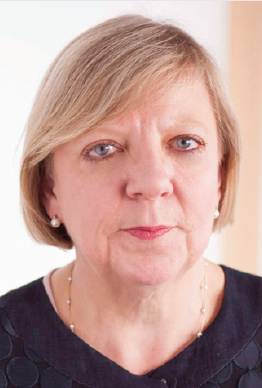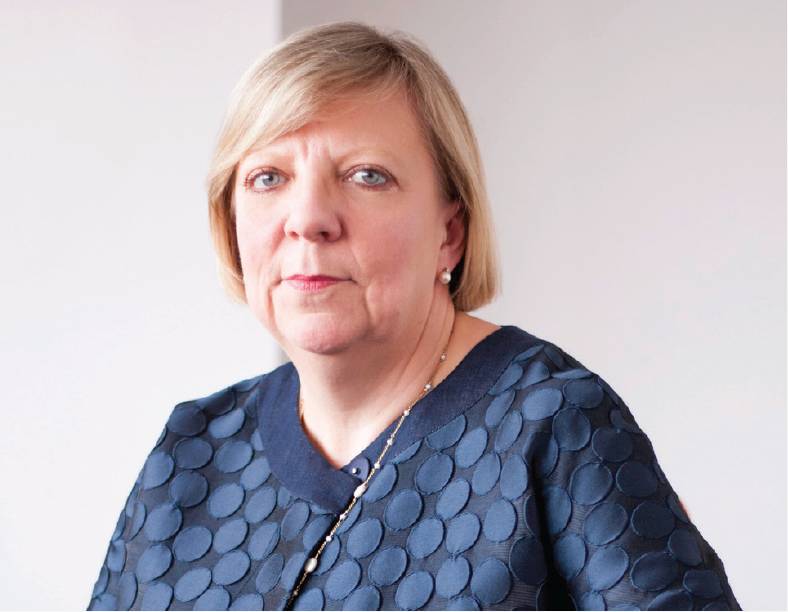The CPS at 30
The 30th anniversary of the CPS ‘is a chance to reflect on the changes we have seen, our achievements and to look to the future’, writes Alison Saunders.

About the author
Alison Saunders is the Director of Public Prosecutions.
This year we are celebrating the 30th anniversary of the CPS, which I joined in 1986 just as it was starting out. Since then, we have been the gatekeeper to the criminal justice system, deciding which cases should and should not be presented to court.
Before the CPS, the police would prosecute their own cases or outsource them to solicitors, but they would still have the last word. The CPS was set up after the Philips Royal Commission, which looked at why criminal cases were failing and recommended the need for an independent body to make consistent decisions. This was, understandably, harder to achieve with 43 different forces bringing their own charges.
My first job at the CPS was as a lawyer based in Croydon. I’ve now been in the service for 30 years in various positions, including the Chief Crown Prosecutor for CPS London before becoming the Director of Public Prosecutions (DPP) in 2013. I’m proud to say that I’m the first DPP to have come up through the ranks. I like to think this shows the organisation is confident about the direction in which it wants to go, and has a pool of experienced and talented people to drawn upon.
Prosecutors decide which cases should get to court by applying the Code for Crown Prosecutors. Put simply, it’s whether there is sufficient evidence to provide a realistic prospect of conviction and also whether it is in the public interest to pursue the case in court. We will never prosecute a case just on the basis of sufficient evidence; it must also meet that public interest test.
The CPS’s greatest asset is its people – their combined knowledge, experience and skills in prosecuting cases is invaluable. We work closely with other organisations, such as the Chartered Institute for Legal Executives (CILEx), to ensure that we have the best people for the job. CILEx Law School has worked closely with the CPS for over 20 years to support caseworkers in their professional development enabling them to manage their career in the legal profession, whether that be in a paralegal role or qualifying as a lawyer and Fellow of CILEx. We currently employ around 180 associate prosecutors, who prosecute a wide range of cases in the magistrates’ courts. The Chartered Institute provides regulation for these prosecutors and ongoing training support.
We also employ more than 600 paralegals, who assist our lawyers in the preparation and management of crown court cases. Each case is allocated to a lawyer and a paralegal officer, and it is the officer who is responsible for ensuring the case progresses effectively. They are responsible for preparing the brief for the prosecution advocate, drafting any applications, attending court and ensuring that all judges’ orders and deadlines are met. The work undertaken by these and other colleagues is essential to help make communities safer and bring offenders to justice.

Charging and prosecuting cases is why the CPS was created, but I want our role to also be about explaining difficult yet important issues to the public. Last year, we launched our award-winning ‘#ConsentIs’ campaign, which addressed issues around sexual assault and rape. It aimed to clarify what the law says about sexual consent, and explain why the CPS does and does not prosecute sexual assault and rape cases where consent is a key factor. We know that sexual offences are under-reported and there is confusion, both within the media and the wider public, about what constitutes consent, so I felt this was a really worthwhile discussion.
The successful campaign – which trended on Twitter – tackled assumptions which often cloud attitudes around sexual consent, such as how a person is dressed, how much they have had to drink and the impact the trauma of a serious assault can have on reporting the incident. These are common, and damaging, stereotypes and although attitudes have come a long way since 1986, we need to keep explaining them. This applies to prosecutors and the judiciary as well, and they have had lots of training to ensure that their decisions remain fair and in the interests of justice.
The latest figures show that the work we have undertaken in this area is having an impact, and today a rape, domestic abuse, sexual offence or child abuse case is more likely to be prosecuted and convicted than ever before. These offences now account for nearly 19% of our workload - an increase over the past six years from just under 9%. While the volume of these cases is increasing, the number of convictions has also risen by 11%.
Over the last year, I doubled national resources in specialist units that handle rape and serious sexual offence cases, including child sexual abuse and sexual exploitation. Prosecutors received detailed training, including on vulnerable victims and the issue of sexual consent. Following this work, we have seen a rise in the rape conviction rate to 57.9% and, significantly, there has also been a fall in the number of rape acquittals after trial.
However, we can never be complacent on any aspect of the law and it is vital that prosecutors keep pace with changes in social norms as well as legislative changes. Social media has transformed the way in which we interact and share information. But it can also be a place to harass, intimidate and share grossly offensive material. The law and prosecutors need to hold those who go too far to account, just as they would if they behaved that way face-to-face. It may be easier to commit offences using social media, but it also leaves a trail of evidence.
Recently the CPS published new guidance for prosecutors on the range of offences for which social media users could face prosecution (see also page 5 of this issue). Ignorance is not a defence, and perceived anonymity is not an escape. Those who commit these acts, or encourage others to do the same, can and will be prosecuted.
Arguably, the biggest change in the last 30 years has been in the development of technology. I believe the current rollout of a single, shared, digital case management system – the ‘CJS Common Platform’ – will have a major impact on how the CPS and the justice system operates over the next three decades. The Common Platform will bring together all information about a case, so that preparation can be completed and shared by all agencies. Ultimately, the defence, victims and witnesses will be able to access the information they need, when they need it. It will further reduce our reliance on paper forms, and give victims and witnesses easier access to electronic and multimedia evidence such as CCTV footage.
Developments such as ‘Better Case Management’ in crown courts and ‘Transforming Summary Justice’ in magistrates’ court are helping to streamline the delivery of justice. It is important that all of us, including the defence, engage early with these initiatives to realise their full benefits. Better and earlier engagement with the defence to identify specific case issues avoids unnecessary and wasted hearings. Undertaken effectively, it significantly reduces workload, improves performance and provides a better service to victims and witnesses.
But it is not just technology that has been transformed: our workload has as well. In 1986, there were just 11,000 cases submitted to us. Today, we prosecute more than 600,000 each year, with a conviction rate of more than 80%. I value our case-working skills and I am pleased they are of such high quality. The challenge is to build on our achievements, and I am confident that in the years ahead we will continue to provide a fair and balanced service.